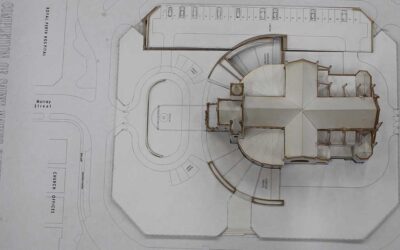Archival Collections Management: From Stewardship to Advocacy

Margot Note
A unique challenge arises in the intricate world of archives—the risk of archivists being perceived as self-promoters.
This perception can hinder archivists’ transformative potential within organizations. However, a profound shift occurs when archivists embrace their inherent leadership role. This journey unfolds through reflective questions, charting a path aligned with abilities and aspirations. At the core of this evolution lies stewardship, the foundation that propels archivists from caretakers to catalysts of change.
Stewardship
Stewardship is the heartbeat of an archivist’s role. It involves a deep engagement with the profession’s meaning and relevance. As archivists nurture stewardship, they transcend their conventional roles, emerging as leaders with a profound sense of responsibility. The evolution from caretakers to catalysts is not just a shift in title but a metamorphosis of purpose.
An archivist’s strength lies in historical insight, providing a vantage point that few possess. Armed with this historical perspective, archivists become invaluable contributors to organizational strategies. In cross-functional discussions, they leverage their expertise to identify trends and offer perspectives enriching contemporary debates. This participation reinforces their credibility and positions them as trusted advisors who shape the organization’s direction.
In the realm of stewardship, archivists not only safeguard the past but also serve as custodians of foresight. Their historical insight informs strategic decisions and enables them to anticipate and navigate the future with a nuanced understanding. Archivists can bridge the gap between tradition and innovation. Their ability to draw connections between historical patterns and emerging trends positions them as indispensable assets in shaping an organization’s trajectory. The metamorphosis of purpose extends beyond preserving materials; it involves shaping the narrative of the future through the lens of the past. As leaders with a profound sense of responsibility, archivists wield their historical acumen to contribute to contemporary debates and guide organizations toward a future informed by the wisdom of history.
Collaboration
Leadership thrives on collaboration, and archivists are inherently well-positioned to foster interdisciplinary partnerships. Archivists align their expertise with organizational needs by contacting legal, marketing, research, and public relations departments. These partnerships extend the reach of archival services and foster a deeper understanding of their role. As conduits for cross-functional communication, archivists solidify their position as vital contributors, breaking down organizational silos.
A leader is not just someone who preserves the past but someone who secures the future. Archivists must become advocates for the resources necessary to fulfill their mission. Navigating the financial landscape becomes crucial as they articulate the strategic importance of their work. Demonstrating the tangible outcomes of their services and aligning initiatives with organizational goals are essential steps. Advocacy for budget allocation ensures that archival programs have the support they need to preserve history and enable access for future generations.
Navigating Perceptions
The risk of misperception is a challenge archivists must navigate on their leadership journey. This perception can be a barrier to collaboration and advocacy. To overcome this challenge, archivists must demonstrate the value they bring to the organization. Clear communication of their role as stewards of history and organizational progress is essential. By embracing transparency and openness, archivists can dispel misconceptions and foster a culture that appreciates their leadership contributions.
The journey from archivist to leader is a nuanced odyssey. It begins with introspection, guided by reflective questions, and evolves through the nurturing of stewardship. Armed with historical insight, archivists become catalysts for change, engaging in collaborative endeavors and advocating for the resources vital to their mission. As they navigate challenges and perceptions, archivists emerge not only as preservers of the past but as architects of a future enriched by the lessons of history. The archivist’s leadership journey is not just a professional evolution but a commitment to shaping the narrative of time itself.

Margot Note
Please join us for a free webinar, From Caretakers to Catalysts: Leadership in Archives, on Wednesday, October 9, 2024 at 11 a.m. Pacific, 2 p.m. Eastern. (Can’t make it? Register anyway and we’ll send you a link to the recording and slides afterwards). Register now or call 604-278-6717 to save your spot!
Never miss another post. Subscribe today!
Similar Posts
Cultivating a Community of Archival Practice: A Client’s Success Story
“We need a dynamic system that supports a consistent approach to managing the Perth diocesan collections across Western Australia…ArchivEra is already providing this with Catholic dioceses in Bendigo, Hobart, and Ballarat.”
Honoring Cultural Protocols in Archival Practice
Learn how archives can honor Indigenous cultural protocols, reframe stewardship, and move toward ethical, reciprocal, and community-driven practices.
Centering Sovereignty in Archives: Decolonial Approaches to Indigenous Knowledge
Margot Note explores how centering sovereignty in archives supports Indigenous rights, decolonial practice, justice, and cultural resurgence.
The Ethical Use of Born-Digital Materials in Archives
Born-digital records introduce complex ethical dilemmas involving consent, privacy, preservation, and access. Archivists must rethink ethical frameworks to navigate digital records’ dynamic, fragmented, and often personal nature.





Leave a Comment
Comments are reviewed and must adhere to our comments policy.
0 Comments